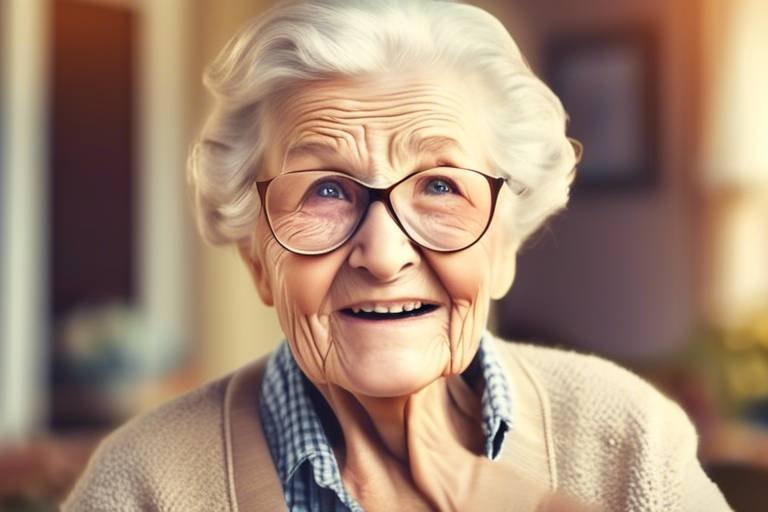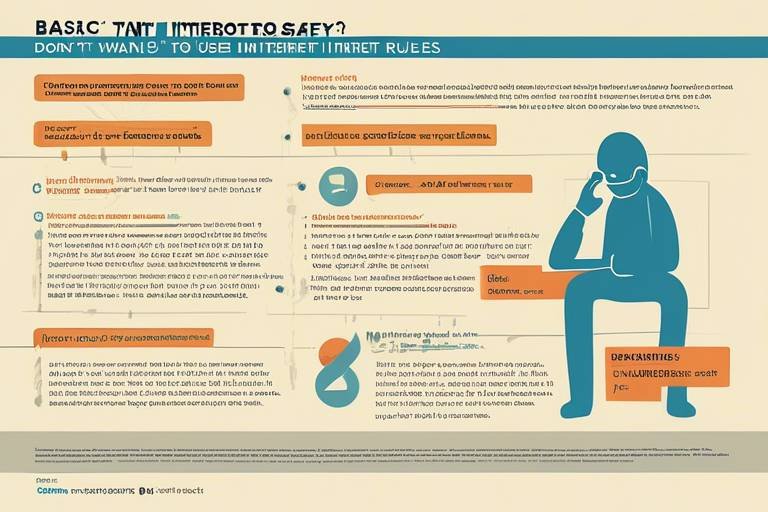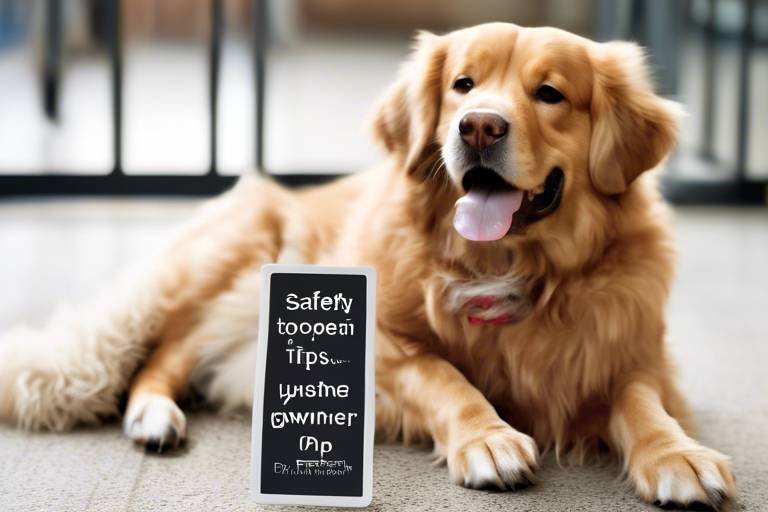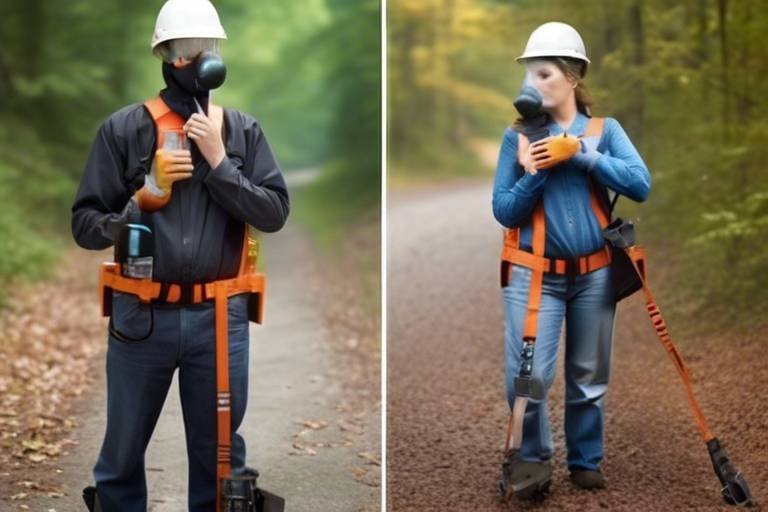Safety Tips for the Elderly – Staying Safe in Golden Years
This article provides essential safety tips for elderly individuals, focusing on home safety, health considerations, and community resources to ensure a secure and fulfilling lifestyle in their golden years. As we age, maintaining safety becomes increasingly important, not just for our physical well-being but also for our mental and emotional health. Imagine navigating through life with the confidence that you can manage the challenges that come with aging. This guide is here to help you do just that, making sure your golden years are truly golden!
Ensuring a safe living environment is crucial for the elderly. The home is where we spend a significant amount of our time, and it should be a sanctuary free from hazards. Simple modifications can make a world of difference. For instance, consider installing grab bars in the bathroom, which can provide support and prevent falls. Non-slip mats in the kitchen and bathroom can also enhance safety. Lighting is another key factor; ensuring that all areas of the home are well-lit can help prevent accidents. Additionally, decluttering spaces can reduce tripping hazards. A tidy environment not only promotes safety but also contributes to a sense of peace and well-being.
Maintaining good health is vital for safety. Regular check-ups with healthcare providers can help catch potential issues early, which is essential as our bodies change with age. It's like having a mechanic check your car regularly to avoid breakdowns. Routine health screenings, such as blood pressure checks and cholesterol tests, are important components of this proactive approach. Don't forget about medication management! Properly organizing medications and understanding prescriptions can prevent adverse effects and ensure that you're taking the right dosages at the right times.
Frequent visits to healthcare providers can help catch potential issues early. Think of these check-ups as your safety net, providing reassurance and guidance for navigating health challenges. Regular screenings for conditions like diabetes, heart disease, and even cancer can be life-saving. It's essential to build a good relationship with your doctor, as they can provide tailored advice and support based on your unique health needs. If you're unsure about what screenings you need, don't hesitate to ask your healthcare provider!
Properly managing medications is essential to prevent adverse effects. A good tip is to use a pill organizer, which can help you keep track of your daily doses. Additionally, understanding your prescriptions is crucial; don't hesitate to ask your pharmacist or doctor if you have questions. Sometimes, medications can interact in unexpected ways, so always keep your healthcare team informed about all the medications you're taking, including over-the-counter drugs and supplements.
A balanced diet plays a significant role in maintaining health. As we age, our nutritional needs change, making it essential to focus on foods that promote well-being. Aim for a diet rich in fruits, vegetables, whole grains, and lean proteins. Hydration is equally important; drinking enough water can help stave off dehydration, which can lead to serious health issues. Consider consulting with a nutritionist to create a meal plan that caters to your specific health needs and preferences. Remember, food is not just fuel; it's also a source of joy and connection!
Regular physical activity is key to maintaining strength and balance. Imagine your body as a well-oiled machine; the more you use it, the better it runs! Safe exercise options for the elderly include walking, swimming, and even gentle yoga. These activities can enhance mobility, improve mood, and boost overall health. If you're unsure where to start, consider joining a local exercise class tailored for seniors, where you can meet new friends while staying active.
Being prepared for emergencies can save lives. Emergencies can happen at any time, so having a plan in place is crucial. This means knowing what to do in case of a fire, medical emergency, or natural disaster. It's wise to create a list of emergency contacts and keep it in an easily accessible location. Additionally, consider investing in a medical alert system that allows you to call for help at the push of a button. This small device can provide immense peace of mind, knowing that help is just a click away.
Developing a comprehensive emergency plan is crucial. Your plan should include evacuation routes, emergency contacts, and a list of medications and allergies. Involve your family in this process; having a support network can make all the difference during stressful situations. Regularly review and practice your plan to ensure that everyone knows what to do when the time comes.
Staying connected with loved ones is important for safety. Communication plays a vital role in ensuring that elderly individuals can reach out for help when needed. Regular check-ins with family and friends can provide emotional support and help identify any potential issues before they escalate. Consider setting up a schedule for phone calls or video chats to stay connected, especially if you live alone. Technology can be a fantastic tool for maintaining these relationships, so don't shy away from using it!
Accessing community resources can enhance safety and well-being. Many communities offer programs specifically designed to support the elderly, such as meal delivery services, transportation assistance, and social activities. These resources can help you stay engaged and connected, reducing feelings of isolation. Reach out to local organizations and explore what's available in your area. Remember, you're not alone in this journey!
- What are some common home safety modifications for the elderly? Consider installing grab bars, using non-slip mats, and ensuring adequate lighting.
- How often should elderly individuals have medical check-ups? Regular visits at least once a year are recommended, but consult your healthcare provider for personalized advice.
- What types of exercises are safe for seniors? Walking, swimming, and gentle yoga are excellent options to maintain strength and balance.
- How can I stay connected with family and friends? Schedule regular phone or video calls to maintain communication and support.

Home Safety Precautions
Ensuring a safe living environment is crucial for the elderly. As we age, our bodies become more susceptible to injuries, so it’s essential to take proactive steps to minimize risks at home. One of the first things to consider is the layout of the living space. Are there any cluttered areas that could lead to trips and falls? It's important to maintain clear pathways by removing unnecessary furniture or items that could obstruct movement. Additionally, think about the lighting. Poor lighting can be a hidden danger, especially during the night. Installing brighter bulbs and using night lights in hallways and bathrooms can significantly enhance visibility and safety.
Another vital aspect of home safety is the use of assistive devices. Grab bars in bathrooms, non-slip mats in the shower, and even a shower chair can make a world of difference. These simple modifications can provide the necessary support to prevent falls. Moreover, consider using a medical alert system. This technology allows elderly individuals to call for help with the push of a button, providing peace of mind not just for them, but also for their loved ones.
Furthermore, keeping emergency contact numbers handy is a smart move. Having a list of important contacts, including family members, neighbors, and medical professionals, can make a significant difference in case of an emergency. You might want to place this list on the refrigerator or near the phone for easy access. In addition, it’s wise to have a fire extinguisher and smoke detectors installed, ensuring they are regularly checked to guarantee they are in working order.
To give you a clearer picture, here’s a quick table summarizing some home safety modifications:
| Modification | Description |
|---|---|
| Grab Bars | Installed in bathrooms to provide support when using the toilet or shower. |
| Non-Slip Mats | Placed in the shower and on bathroom floors to prevent slipping. |
| Night Lights | Used in hallways and bathrooms to improve visibility at night. |
| Medical Alert System | A device that allows immediate access to help in emergencies. |
| Emergency Contact List | A list of important phone numbers for quick access during emergencies. |
Lastly, it’s essential to regularly assess the home environment. What worked well a few years ago might not be suitable now. Encourage elderly individuals to actively participate in the process of making their home safer. After all, who knows their needs better than they do? By fostering an open dialogue about safety concerns, you can help them feel empowered and in control of their living space.
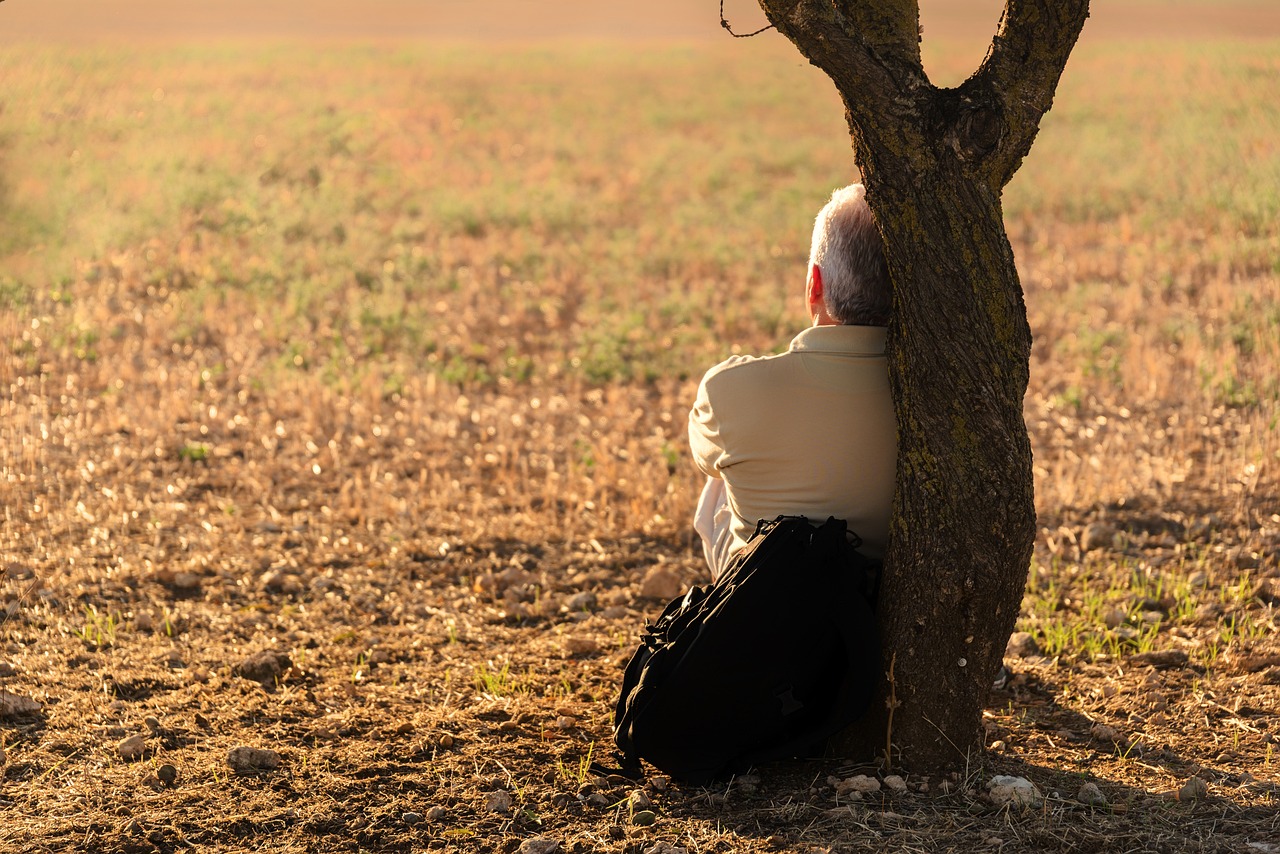
Health and Wellness Considerations
Maintaining good health is vital for safety, especially for elderly individuals who may face unique challenges as they age. It’s essential to adopt a proactive approach to health and wellness, which not only enhances physical well-being but also boosts mental and emotional health. After all, feeling good in your body can make a world of difference in your day-to-day life. So, what can you do to stay healthy and safe? Let’s dive into some key considerations!
Frequent visits to healthcare providers can help catch potential issues early. Think of regular check-ups as a tune-up for your body; just like a car needs maintenance to run smoothly, your health requires attention too! Routine health screenings and consultations are essential for elderly individuals. They can help detect conditions such as high blood pressure, diabetes, or even early signs of cognitive decline. So, don’t wait for something to go wrong—make those appointments and stay ahead of the game!
Properly managing medications is essential to prevent adverse effects. With multiple prescriptions often involved, it can feel like juggling flaming torches! To make this easier, consider organizing your medications in a pill organizer. This simple tool can help ensure that you take the right medication at the right time. Additionally, understanding your prescriptions is crucial. If you ever feel confused about what a medication is for or how to take it, don’t hesitate to ask your doctor or pharmacist. Remember, knowledge is power!
A balanced diet plays a significant role in maintaining health. Think of food as fuel for your body; the better the fuel, the better the performance! Here are some nutritional guidelines tailored for elderly individuals:
- Stay Hydrated: Drink plenty of water throughout the day.
- Eat a Variety: Incorporate fruits, vegetables, whole grains, and lean proteins into your meals.
- Limit Sodium and Sugar: Reducing salt and sugar can help manage blood pressure and weight.
Eating well not only nourishes your body but also enhances your mood and energy levels. So, let’s make those meals colorful and nutritious!
Regular physical activity is key to maintaining strength and balance. Think of exercise as a bridge that connects you to a healthier, more active lifestyle. It’s not just about hitting the gym; even simple activities like walking, gardening, or dancing can make a huge difference. Here are some safe exercise options:
- Walking: A simple and effective way to stay active.
- Chair Yoga: Gentle stretches that improve flexibility.
- Water Aerobics: Low-impact exercises that are easy on the joints.
Engaging in regular physical activity can enhance mobility, improve mood, and even help with sleep. So, lace up those sneakers and get moving!
Q1: How often should elderly individuals have medical check-ups?
A1: It’s generally recommended to have check-ups at least once a year, or more frequently if there are existing health concerns.
Q2: What should I do if I forget to take my medication?
A2: If you miss a dose, take it as soon as you remember unless it's close to the time for your next dose. Never double up to make up for a missed dose.
Q3: Can I exercise if I have health issues?
A3: Always consult with your healthcare provider before starting any exercise routine, especially if you have existing health conditions.
Q4: What are some easy ways to stay hydrated?
A4: Carry a water bottle with you, eat water-rich foods like fruits and vegetables, and set reminders to drink water throughout the day.

Regular Medical Check-ups
As we age, our bodies undergo a myriad of changes, making not just a good idea, but a vital necessity. These check-ups serve as a proactive approach to health, allowing healthcare providers to catch potential issues before they escalate into serious problems. Think of it like maintaining a classic car; regular tune-ups can prevent breakdowns and keep everything running smoothly. So, why should elderly individuals prioritize these appointments?
First and foremost, routine check-ups can help identify chronic conditions such as diabetes, hypertension, and heart disease early on. Early detection often leads to more effective treatment options and better health outcomes. For instance, a simple blood test can reveal elevated blood sugar levels, prompting lifestyle changes or medication adjustments that could prevent complications down the road. Not to mention, these visits can also serve as a time for discussing any new symptoms or concerns that may have arisen since the last appointment.
Moreover, regular check-ups are an excellent opportunity to review medications. As we age, the medications we take may change, and it’s crucial to ensure that they are still appropriate and effective. This is especially important because elderly individuals often take multiple medications, which can lead to potential drug interactions or side effects. Having a healthcare provider review these can provide peace of mind and improve overall safety.
Another vital aspect of these check-ups is the importance of preventive screenings. Depending on age and health history, these may include:
- Blood pressure checks
- Cholesterol screenings
- Cancer screenings (like mammograms or colonoscopies)
- Bone density tests to assess osteoporosis risk
In addition to physical health, mental health should also be a topic of discussion during these visits. Conditions like depression and anxiety can affect anyone, but they may be overlooked in older adults. Regular check-ups provide a safe space to talk about emotional well-being, allowing healthcare providers to offer resources or referrals to specialists if needed.
Lastly, keeping a consistent schedule for medical check-ups can foster a strong relationship between the patient and their healthcare provider. This rapport not only builds trust but also encourages open communication about health concerns, making it easier for elderly individuals to seek help when they need it. So, if you or a loved one is due for a check-up, don’t hesitate to schedule that appointment. It could make all the difference in maintaining a healthy, happy lifestyle!
Q: How often should elderly individuals have medical check-ups?
A: Generally, elderly individuals should have a check-up at least once a year, but this can vary based on individual health needs and conditions. Always consult with a healthcare provider for personalized recommendations.
Q: What should I bring to my medical check-up?
A: It’s helpful to bring a list of current medications, any recent lab results, and a list of questions or concerns you may have. This ensures you make the most of your appointment.
Q: Are there specific screenings that older adults should prioritize?
A: Yes, screenings for blood pressure, cholesterol, diabetes, and certain cancers are crucial. Discuss with your doctor which screenings are appropriate based on your age and health history.
Q: How can I prepare for a medical check-up?
A: Preparing for a check-up can include writing down symptoms, reviewing medication lists, and being ready to discuss lifestyle factors like diet and exercise. This preparation can lead to a more productive visit.
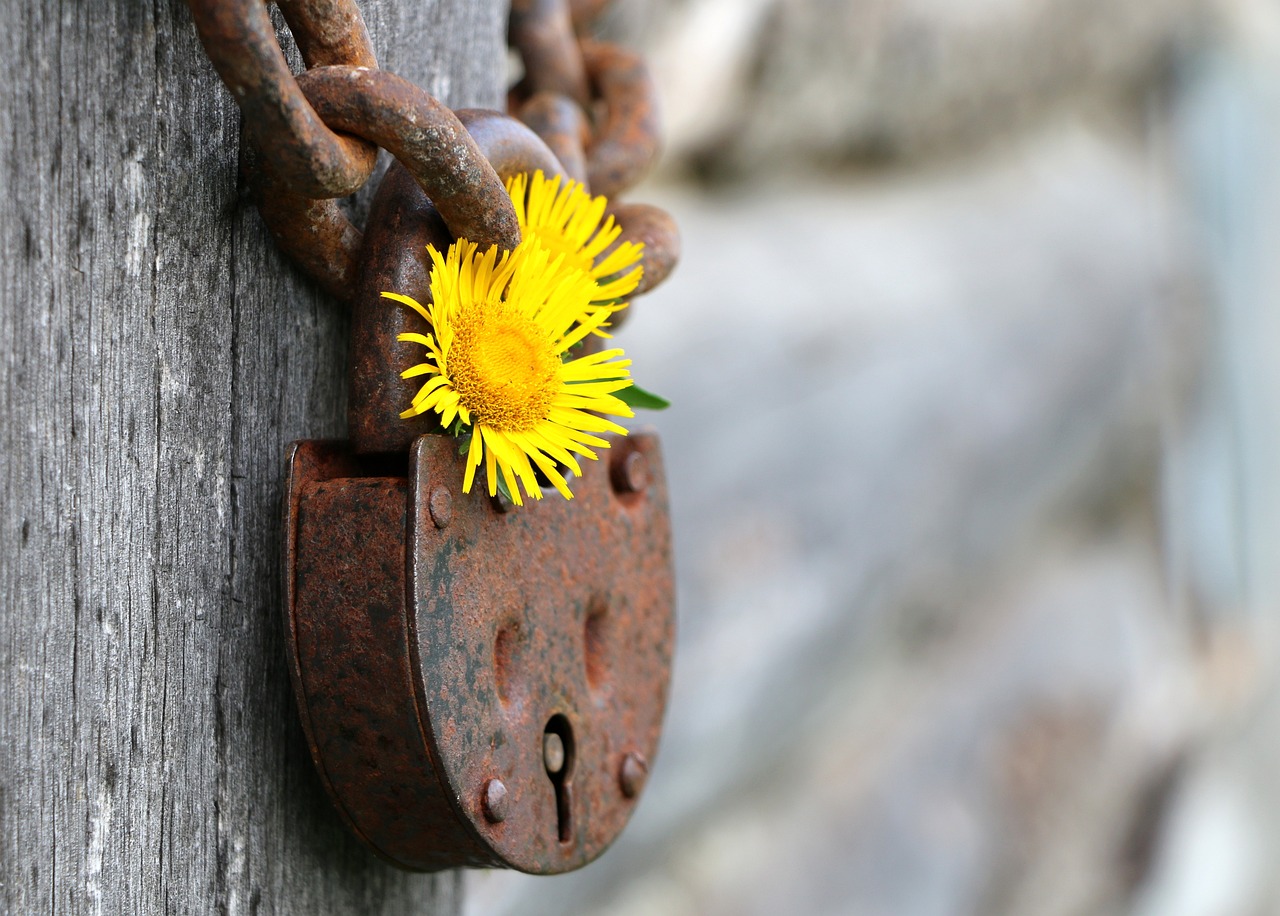
Medication Management
Managing medications effectively is a crucial aspect of ensuring safety and health for the elderly. With the complexity of multiple prescriptions and varying dosages, it can often feel like navigating a maze. However, with a little organization and attention, this maze can become a well-marked path. First and foremost, it’s essential to keep a detailed list of all medications, including dosages and schedules. This can help prevent any mix-ups and ensure that each medication is taken as prescribed.
One effective method of organizing medications is to use a pill organizer. These handy devices come in various forms, such as weekly or monthly compartments, making it easy to see at a glance if a dose has been missed. Additionally, setting reminders on a smartphone or using a simple alarm clock can serve as a gentle nudge to take medications on time. For those who may not be tech-savvy, a family member or caregiver can help establish a routine that includes medication times.
It’s also vital to regularly review medications with healthcare providers. This ensures that all prescriptions are still necessary and that there are no adverse interactions between them. Sometimes, medications can be adjusted or even discontinued based on the patient’s changing health needs. Keeping a medication journal can be beneficial, where elderly individuals can note any side effects or changes in their health after starting a new medication. This information can be invaluable during medical appointments.
Moreover, understanding how to properly take medications is just as important as taking them. For instance, some medications should be taken with food, while others require an empty stomach. Misunderstanding these instructions can lead to ineffective treatment or increased side effects. Therefore, don’t hesitate to ask the pharmacist or doctor for clarification on any medication-related questions.
Lastly, it’s important to dispose of medications that are no longer needed or have expired. Keeping old medications can lead to confusion and potential health risks. Many communities offer drug take-back programs, which provide a safe way to dispose of unused medications. This not only helps in keeping the home safe but also prevents accidental ingestion by children or pets.
In summary, effective medication management is all about organization, communication, and education. By taking proactive steps, elderly individuals can ensure that their medication routines contribute positively to their health and safety. Remember, it’s not just about taking medications; it’s about taking them correctly!
- What should I do if I miss a dose of my medication? If you miss a dose, take it as soon as you remember. However, if it’s close to the time for your next dose, skip the missed dose and continue with your regular schedule. Never double up on doses.
- How can I tell if my medications are interacting? Always consult your healthcare provider or pharmacist if you’re starting a new medication. They can check for potential interactions and advise you accordingly.
- What are the best ways to remember to take my medications? Using a pill organizer, setting alarms, or having a family member remind you can be effective strategies. Keeping your medications in a designated spot can also help.
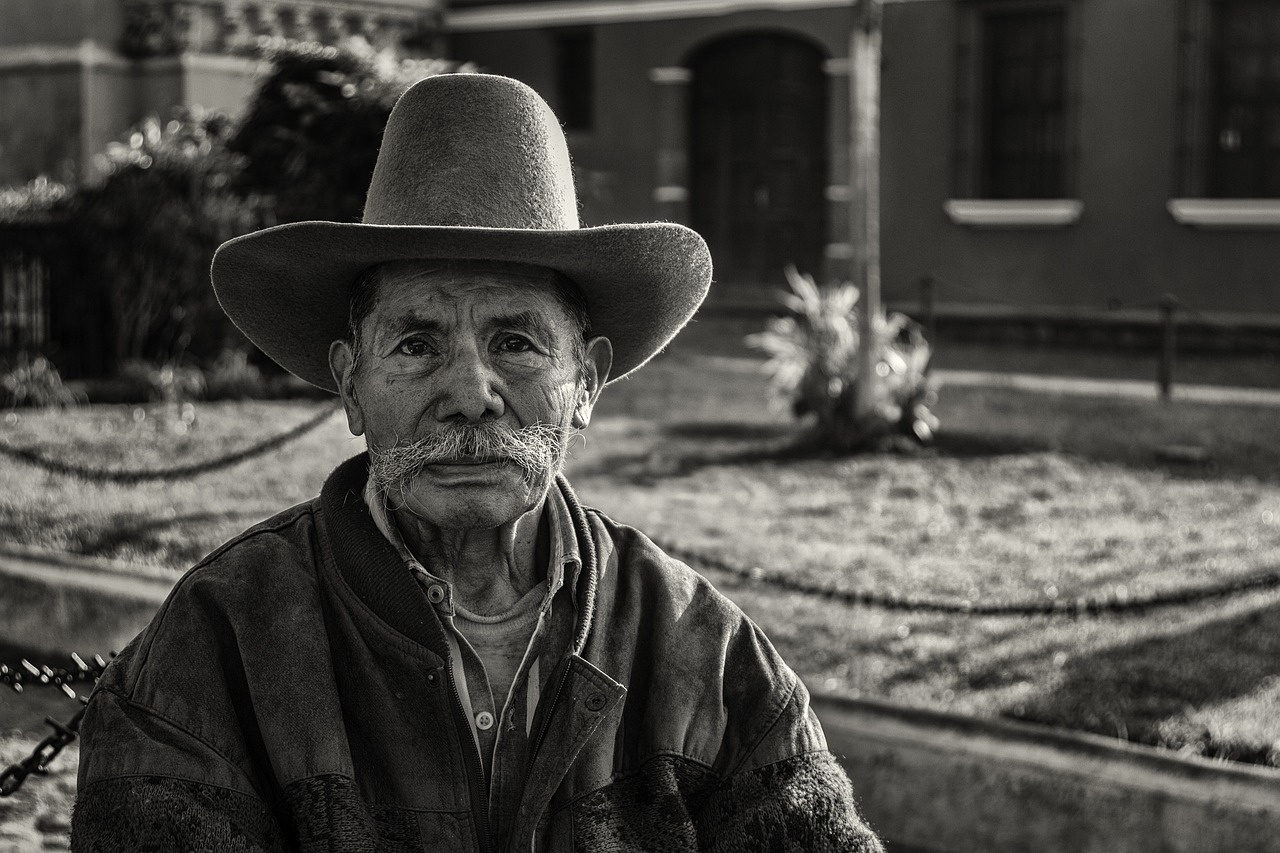
Healthy Diet and Nutrition
Maintaining a healthy diet is not just about eating right; it's about fueling your body with the nutrients it needs to thrive, especially in your golden years. As we age, our nutritional requirements change, and it becomes essential to adapt our diets to support our health. A balanced diet can significantly enhance overall well-being, boost energy levels, and even improve mood. But what does a healthy diet look like for the elderly? Let's explore!
First and foremost, a well-rounded diet should include a variety of food groups. This means incorporating:
- Fruits and Vegetables: Aim for a colorful plate! Fruits and vegetables are rich in vitamins, minerals, and fiber. They help combat chronic diseases and keep your digestive system running smoothly.
- Whole Grains: Whole grains like brown rice, oatmeal, and whole wheat bread provide essential nutrients and fiber, which can help with heart health and digestion.
- Lean Proteins: Proteins are crucial for muscle maintenance. Opt for lean meats, fish, eggs, beans, and nuts to ensure you’re getting enough protein without excess fat.
- Dairy or Alternatives: Calcium and vitamin D are vital for bone health. Incorporate low-fat milk, yogurt, or fortified plant-based alternatives to meet your needs.
Moreover, hydration plays a crucial role in nutrition. As we age, our sense of thirst may diminish, leading to dehydration. It's important to drink plenty of fluids, preferably water, throughout the day. Herbal teas and broths can also be excellent options to keep you hydrated.
Another significant aspect of a healthy diet is portion control. While it’s essential to eat a variety of foods, understanding how much to eat is equally important. Overeating can lead to weight gain and associated health issues. Consider using smaller plates to help manage portion sizes and prevent unintentional overindulgence.
It’s also vital to be mindful of special dietary needs. Many elderly individuals may have specific health conditions, such as diabetes or hypertension, that require dietary adjustments. For instance, those with diabetes should focus on controlling carbohydrate intake and choosing low-glycemic index foods. Consulting with a healthcare provider or a registered dietitian can provide personalized guidance tailored to individual health needs.
Lastly, don’t forget the joy of eating! Meals can be a wonderful social experience. Sharing a meal with family or friends not only enhances the enjoyment of food but also fosters emotional well-being. So, gather your loved ones and make mealtime a delightful occasion!
Q: How can I ensure I'm getting enough nutrients in my diet?
A: Focus on a variety of foods from all food groups. Consider speaking with a healthcare professional or a registered dietitian for personalized advice.
Q: What are some easy ways to stay hydrated?
A: Carry a water bottle throughout the day, incorporate soups and broths into your meals, and consume water-rich fruits and vegetables like cucumbers and watermelon.
Q: Can I still enjoy my favorite foods while eating healthy?
A: Absolutely! Moderation is key. You can enjoy your favorite treats occasionally, but balance them with healthier options and portion control.
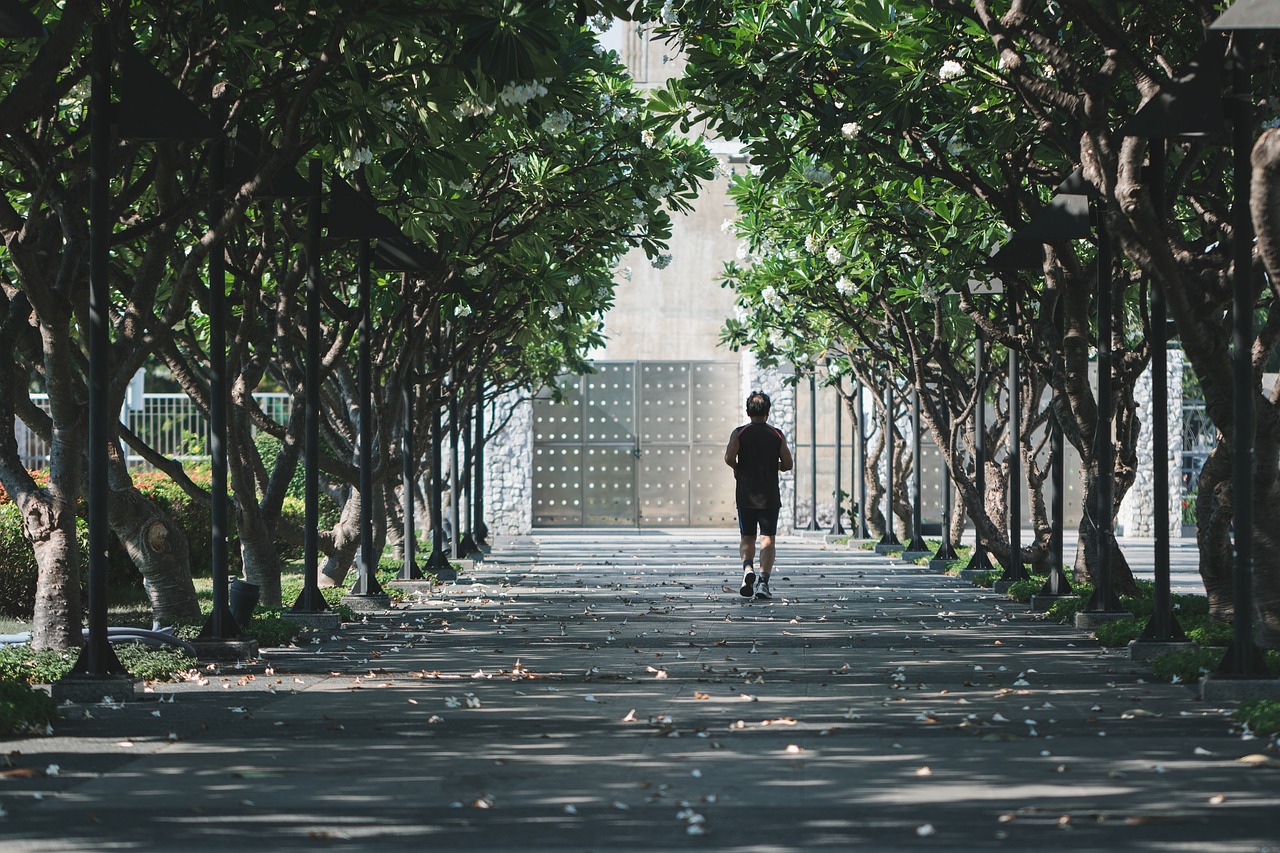
Physical Activity and Exercise
Staying active is not just about keeping fit; it's about maintaining a vibrant lifestyle during your golden years. Regular physical activity can significantly enhance your strength, flexibility, and balance, which are crucial for preventing falls and injuries. Imagine your body as a well-tuned machine; the more you use it, the better it performs. But what does staying active really look like for the elderly? Let's dive into some effective and safe exercise options!
First off, it's important to recognize that exercise doesn’t have to mean hitting the gym or running marathons. In fact, many simple activities can be incredibly beneficial. Consider activities like walking, swimming, or even gardening. These movements not only keep you physically engaged but also provide a sense of accomplishment and joy. For instance, walking is a fantastic way to strengthen your heart and improve your mood. Plus, it’s something you can do almost anywhere!
Another key aspect of maintaining physical activity is incorporating strength training into your routine. Yes, you heard that right! Lifting light weights or using resistance bands can help build muscle mass and improve bone density, which is especially important as we age. You don’t have to lift heavy; even using your own body weight can be effective. Think of it as giving your body the support it needs to carry out daily tasks with ease.
Here’s a quick rundown of some safe and enjoyable exercises for the elderly:
- Walking: A simple yet effective way to improve cardiovascular health.
- Chair Yoga: Great for flexibility and relaxation without straining your body.
- Water Aerobics: Gentle on the joints while providing resistance for strength.
- Balance Exercises: Such as standing on one foot or tai chi, to enhance stability.
To make the most of your exercise routine, consider setting realistic goals. Start slow and gradually increase the intensity and duration of your workouts. For example, if you’re just starting out, aim for 10-15 minutes of activity a day and work your way up to 30 minutes or more. Remember, consistency is key, and finding activities you enjoy will make it easier to stick with them.
Moreover, don’t hesitate to seek guidance from healthcare professionals or fitness trainers who specialize in senior fitness. They can help tailor a program that suits your individual needs and abilities. Think of them as your personal coach, cheering you on and ensuring you’re doing exercises safely.
Lastly, always listen to your body. If something doesn’t feel right, don’t push through the pain. It’s perfectly okay to take a break or modify an exercise. Staying safe while being active is the ultimate goal. So, lace up those shoes, grab a friend, and get moving! Your body will thank you for it.
Q: How often should seniors exercise?
A: Aim for at least 150 minutes of moderate aerobic activity each week, plus strength training on two or more days.
Q: What if I have health issues?
A: Always consult with your healthcare provider before starting any new exercise program, especially if you have chronic health conditions.
Q: Can I exercise if I'm not very active now?
A: Absolutely! Start with small, manageable activities and gradually increase your activity level as you become more comfortable.
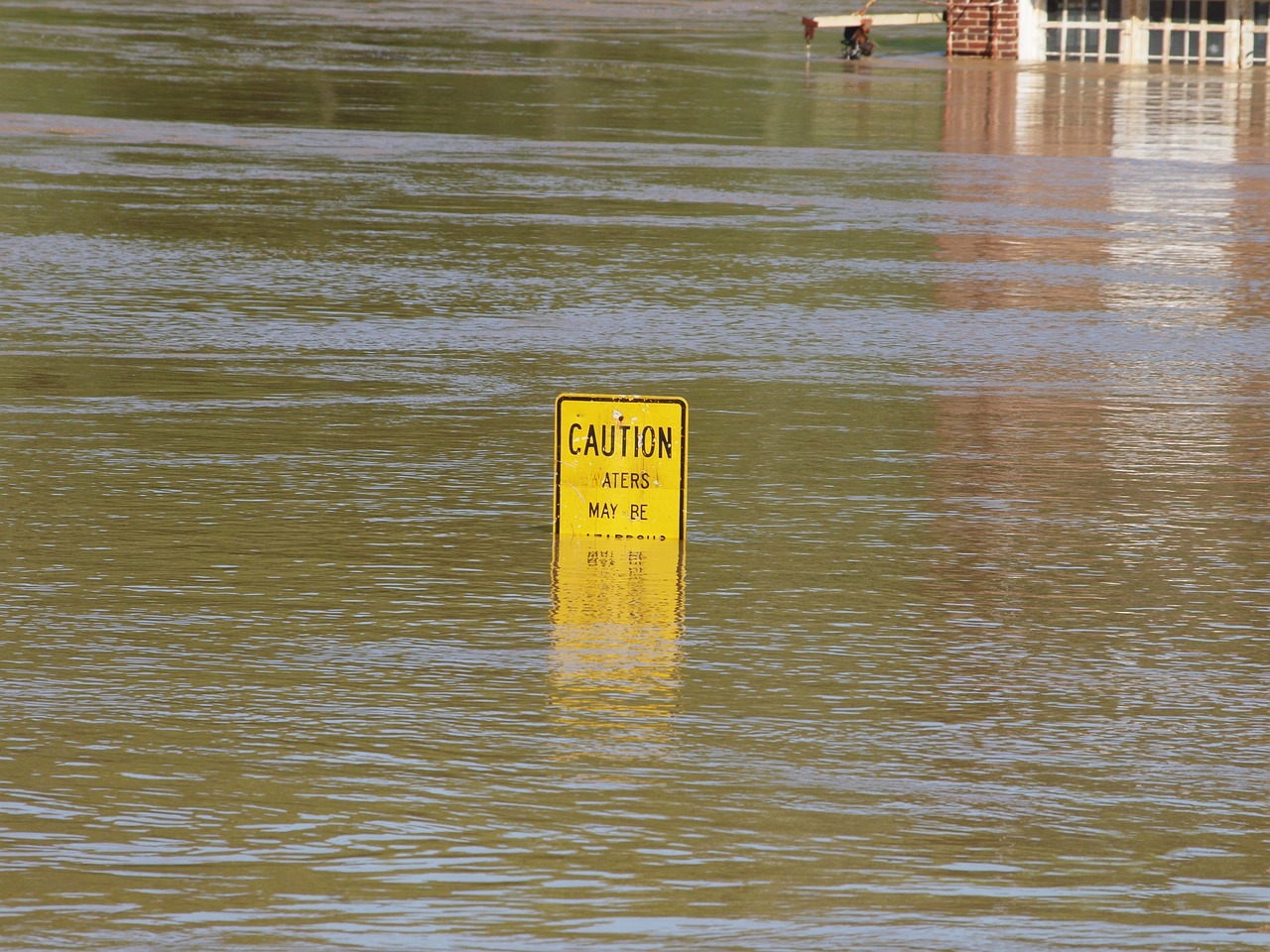
Emergency Preparedness
Being prepared for emergencies is not just a precaution; it’s a lifeline for elderly individuals. Imagine the peace of mind that comes with knowing you’re ready for any situation that might arise! From natural disasters to medical emergencies, having a solid plan can make all the difference. So, how can we ensure that our loved ones are equipped to handle unexpected events? Let's dive in!
First and foremost, it's essential to develop a comprehensive emergency plan. This plan should include critical information such as emergency contacts, medical information, and evacuation routes. Think of it as a roadmap for safety. You wouldn’t embark on a road trip without a map, right? Similarly, having a clear plan can guide elderly individuals through chaos. Here are some key elements to include in an emergency plan:
- Emergency Contacts: List family members, friends, and neighbors who can be contacted in case of an emergency.
- Medical Information: Include details about medications, allergies, and any chronic conditions.
- Evacuation Routes: Identify safe exits from the home and alternative routes in case of roadblocks.
- Meeting Points: Designate a safe location where family members can reunite after an emergency.
Next, it’s crucial for elderly individuals to be aware of how to respond in various situations. This includes knowing when to call for help and how to use emergency services effectively. Training sessions on basic first aid and CPR can also be incredibly beneficial. Just think about it: having the ability to provide immediate assistance can be a game changer in critical moments!
Furthermore, communication plays a pivotal role in ensuring safety. Encourage regular check-ins with family and friends. This not only helps in maintaining relationships but also ensures that elderly individuals have a support system in place. In times of distress, knowing someone is just a phone call away can be incredibly comforting. Consider setting up a group chat or scheduled calls to keep everyone connected.
Lastly, don't underestimate the importance of having essential supplies on hand. Create an emergency kit that includes items such as:
| Essential Item | Purpose |
|---|---|
| Water | Hydration during emergencies |
| Non-perishable food | Nutrition when access to food is limited |
| Flashlight and batteries | Illumination during power outages |
| First aid kit | Basic medical supplies for injuries |
| Personal documents | Identification and important paperwork |
By taking these steps, elderly individuals can significantly enhance their safety and well-being. Remember, preparation is not just about having a plan; it’s about creating a sense of security that allows for a fulfilling and independent lifestyle. So, let’s empower our loved ones to be ready for anything that comes their way!
Q: What should I include in my emergency kit?
A: Your emergency kit should include water, non-perishable food, a flashlight, batteries, a first aid kit, and personal documents.
Q: How often should I review my emergency plan?
A: It’s a good idea to review your emergency plan at least once a year or whenever there are significant changes in your living situation.
Q: Who should I contact for help in an emergency?
A: Keep a list of emergency contacts, including family members, friends, and local emergency services, readily available in your emergency plan.
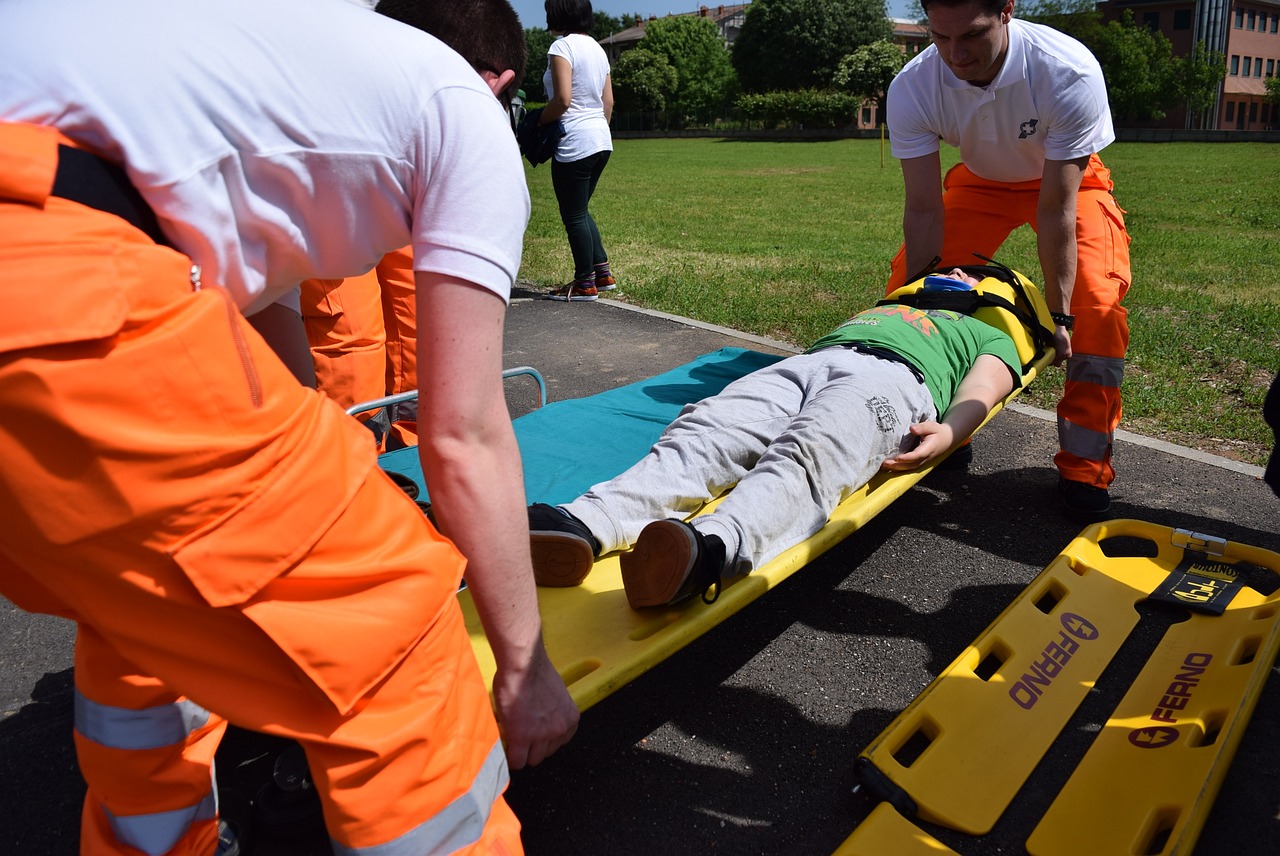
Creating an Emergency Plan
Creating an emergency plan is not just a precaution; it’s a lifeline that can make all the difference in critical situations. For elderly individuals, having a well-thought-out plan ensures that they can respond effectively to emergencies, whether it's a natural disaster, a medical crisis, or even a power outage. Imagine being in a situation where every second counts, and knowing exactly what to do can alleviate panic and confusion. So, how do we craft this essential guide for safety?
First and foremost, it’s crucial to identify potential emergencies that may arise in your area. This could range from severe weather events like hurricanes or snowstorms to local emergencies such as fires or earthquakes. Once you have a clear understanding of the risks, you can tailor your plan accordingly. Consider including the following components in your emergency plan:
- Contact Information: Compile a list of important contacts, including family members, friends, and local emergency services. This information should be easily accessible.
- Evacuation Routes: Identify the safest and quickest routes to evacuate your home if necessary. Make sure to practice these routes with family or caregivers.
- Emergency Supplies: Gather essential supplies, such as medications, water, non-perishable food, a flashlight, and a first-aid kit. Store these in an easily reachable place.
Once you’ve established the basic components, it’s time to put your plan into action. Schedule regular family meetings to discuss the emergency plan and ensure everyone understands their roles. This not only fosters a sense of preparedness but also strengthens communication among family members. It’s like rehearsing for a play; everyone has their part to play, and knowing those roles can lead to a smoother performance when the curtain rises on an actual emergency.
Another vital aspect of your emergency plan is to ensure that it is documented and shared with those who might need it. Consider creating a simple brochure or a digital document that outlines the plan and distributing it to family members, caregivers, and close friends. This way, everyone is on the same page and can act swiftly should the need arise.
Lastly, remember that emergencies can happen at any time, so regular reviews of your emergency plan are essential. Life changes, and so do circumstances. Regularly updating your plan ensures that it remains relevant and effective. Set reminders on your calendar to revisit the plan every six months or after any major life changes, such as moving to a new home or changes in health status.
By taking these steps to create and maintain an emergency plan, elderly individuals can significantly enhance their safety and peace of mind. It’s about being proactive rather than reactive, ensuring that when the unexpected occurs, you are ready to face it head-on.
Q1: What should I do if I live alone and have an emergency?
A1: Ensure that you have a reliable communication method, such as a mobile phone or a medical alert system. Inform a neighbor or friend about your emergency plan so they can check on you if needed.
Q2: How often should I practice my emergency plan?
A2: It's a good idea to practice your emergency plan at least twice a year. This keeps the information fresh and ensures everyone knows their roles.
Q3: What essential items should I include in my emergency supply kit?
A3: Your emergency kit should include medications, a flashlight, batteries, non-perishable food, water, a first-aid kit, and any necessary personal items.
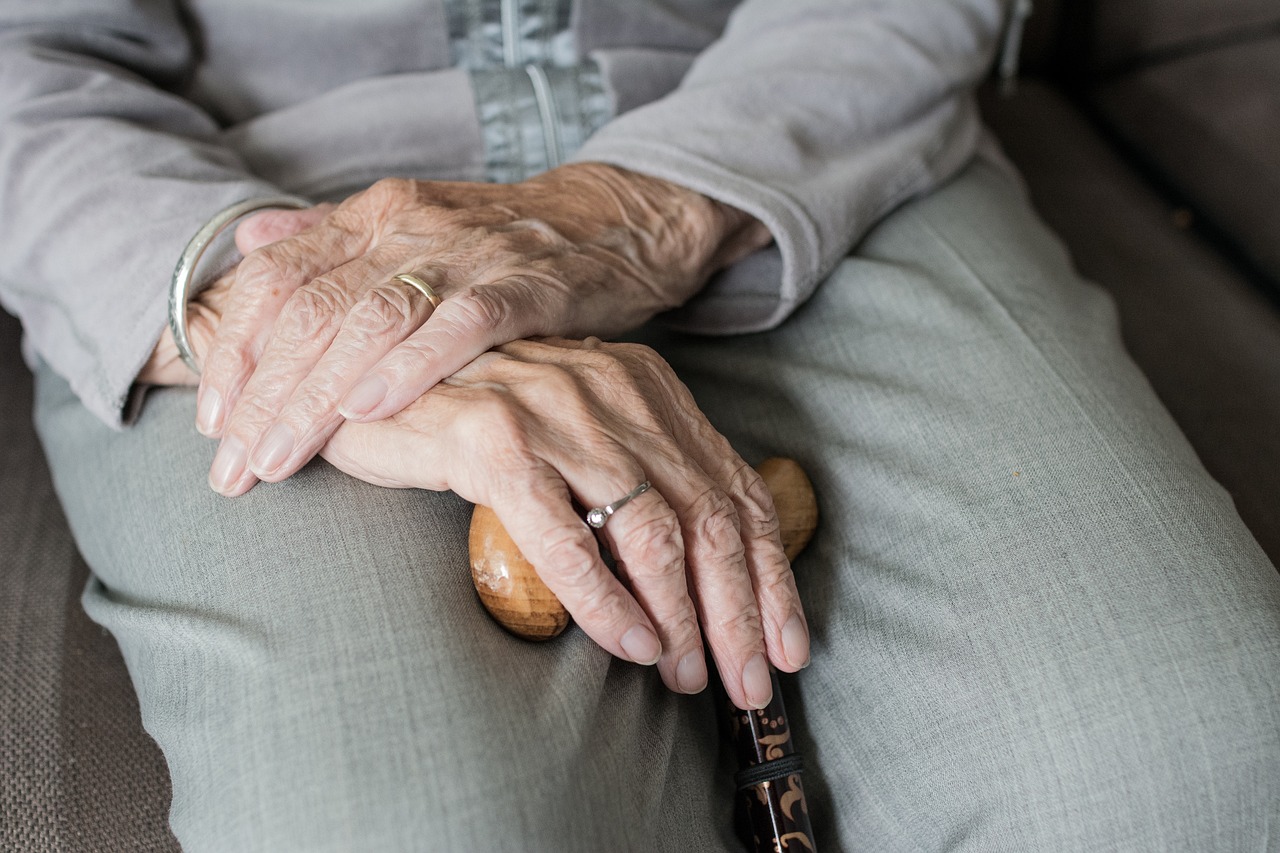
Communication with Family and Friends
Staying connected with family and friends is not just about sharing stories or catching up on the latest news; it’s a crucial element for ensuring safety and well-being in the golden years. Imagine having a safety net woven from the threads of love, support, and understanding. This net can catch you when you stumble, both physically and emotionally. Regular communication helps to foster these connections, making it easier for elderly individuals to reach out when they need assistance or companionship.
One of the most effective ways to maintain these connections is through technology. While many seniors may feel intimidated by smartphones or computers, these tools can be incredibly empowering. Video calls, social media, and messaging apps can bridge the gap between generations, allowing for instant communication. It’s like having a virtual hug whenever you need it! Encouraging elderly individuals to learn and use these technologies can be a game-changer in their social lives.
However, technology isn’t the only avenue for staying connected. In-person visits, phone calls, and even handwritten letters can have a profound impact on emotional health. It’s essential for family and friends to make a conscious effort to check in regularly. A simple phone call can brighten someone's day and remind them that they are loved and valued. Consider setting up a weekly family call or a monthly gathering to ensure that everyone stays engaged and connected.
Moreover, establishing a routine for communication can create a sense of stability. Here are some practical tips to enhance communication:
- Schedule Regular Check-ins: Set specific days and times for calls or visits. This creates anticipation and gives everyone something to look forward to.
- Use Reminders: Utilize calendar apps or alarms to remind family members to reach out, ensuring that no one feels forgotten.
- Encourage Sharing: Ask about their day, interests, or hobbies. This not only fosters deeper conversations but also shows genuine care.
In addition to direct communication, it’s important to create an environment where elderly individuals feel comfortable expressing their needs. Encourage them to voice any concerns, whether it’s about health, safety, or loneliness. This open dialogue can help family members identify potential issues before they escalate. Just like a well-tended garden, relationships flourish when nurtured with attention and care.
Lastly, consider involving community resources that promote social interaction. Many local organizations offer programs specifically designed for seniors, such as group activities, workshops, or support groups. These opportunities not only enhance social connections but also provide a platform for sharing experiences with peers who understand their unique challenges. It’s a win-win situation!
In summary, effective communication with family and friends is vital for the safety and emotional well-being of elderly individuals. By leveraging technology, maintaining regular contact, and creating an open environment for discussion, we can help our loved ones feel secure and cherished in their golden years.
Q: How can I help my elderly loved one use technology for communication?
A: Start by introducing them to user-friendly devices and apps. Offer to set up their accounts and guide them through the basics. Be patient and encourage them to practice regularly.
Q: What if my elderly family member prefers traditional communication methods?
A: Respect their preferences! Schedule regular phone calls or visits, and consider sending letters or cards to keep the connection strong.
Q: How can I encourage more social interaction for my elderly loved one?
A: Involve them in community programs, suggest group activities, or even host family gatherings to provide opportunities for socialization.

Community Resources and Support
Accessing community resources is a crucial aspect of enhancing safety and overall well-being for the elderly. As we age, it’s vital to know that we are not alone and that there are numerous organizations and services designed specifically to support older adults. Imagine having a safety net of resources at your fingertips, ready to catch you whenever you need assistance. From local community centers offering activities and social interactions to health services that keep you feeling your best, the options are plentiful.
Many communities offer senior centers where older adults can engage in various activities ranging from arts and crafts to exercise classes. These centers not only provide a space for physical activity but also foster social connections, which are essential for mental health. Engaging with peers can reduce feelings of loneliness and isolation, making the golden years truly enjoyable.
In addition, local health departments often provide valuable resources such as health screenings, nutrition programs, and information on managing chronic conditions. These services can be instrumental in helping elderly individuals maintain their health and independence. For instance, many communities have meal delivery services that ensure seniors receive nutritious meals without the hassle of cooking. Imagine the comfort of having a warm meal delivered right to your door, allowing you to focus on enjoying life rather than worrying about grocery shopping.
Furthermore, it’s important to stay informed about transportation services available in your area. Many communities offer free or low-cost transportation options for seniors, making it easier to attend medical appointments, social events, or even just run errands. This can significantly enhance mobility and independence, allowing elderly individuals to remain active participants in their communities.
To help you navigate these resources, here’s a quick table summarizing some common community support services available for the elderly:
| Resource Type | Description | Example Services |
|---|---|---|
| Senior Centers | Places for social activities and engagement | Arts, exercise classes, and social events |
| Health Services | Programs for health screenings and chronic condition management | Nutrition programs, health workshops |
| Transportation Services | Assistance with mobility for appointments and errands | Shuttle services, volunteer drivers |
| Meal Services | Delivery of nutritious meals | Home-delivered meals, meal prep classes |
Additionally, many non-profit organizations and local government programs offer assistance with home modifications, helping to create a safer living environment. This can include installing grab bars in bathrooms, improving lighting, or even providing resources for fall prevention. Such modifications can make a world of difference, allowing elderly individuals to live more safely and comfortably in their own homes.
Lastly, don’t underestimate the power of community involvement. Volunteering or participating in local events can provide a sense of purpose and connection. It’s a beautiful cycle—by engaging with others, you not only enhance your own life but also contribute to the well-being of your community. So why not get involved? Whether it’s joining a book club or helping out at a local charity, the possibilities are endless!
In conclusion, the resources available for the elderly are abundant and varied. From health services to social engagement opportunities, leveraging these community supports can significantly improve safety and quality of life. Remember, you are not alone in this journey; there are many hands ready to help you navigate your golden years.
- What types of services are available for seniors in my community? Most communities offer a range of services including health screenings, meal delivery, transportation, and social activities.
- How can I find a local senior center? You can search online for senior centers in your area or contact local health departments for recommendations.
- Are there any costs associated with community resources? Many services are offered for free or at a low cost, but it’s best to check with individual organizations for specific fees.
Frequently Asked Questions
- What are some simple home safety modifications for the elderly?
Making a few adjustments around the house can significantly enhance safety for elderly individuals. Consider installing grab bars in the bathroom, ensuring adequate lighting in all rooms, and removing tripping hazards like loose rugs or clutter. These small changes can make a big difference in preventing falls and accidents.
- How often should elderly individuals have medical check-ups?
It's generally recommended that seniors have a medical check-up at least once a year, but this can vary based on individual health needs. Regular visits allow healthcare providers to monitor chronic conditions, update medications, and catch any potential health issues early. Think of it as a regular tune-up for your health!
- What are some tips for managing medications safely?
To manage medications effectively, keep a detailed list of all prescriptions, dosages, and schedules. Using a pill organizer can help ensure the right medications are taken at the right times. Also, consider setting reminders on your phone or using a medication management app to avoid missing doses.
- How can an elderly person maintain a healthy diet?
A balanced diet is crucial for elderly individuals. Focus on incorporating a variety of fruits, vegetables, whole grains, and lean proteins into meals. Staying hydrated is also important, so encourage drinking plenty of water throughout the day. Think of food as fuel for your body, helping you stay active and energized!
- What types of exercise are safe for seniors?
Low-impact exercises such as walking, swimming, or yoga are excellent options for seniors. These activities help maintain strength and flexibility without putting too much strain on the body. It's essential to consult with a healthcare provider before starting any new exercise routine to ensure it's safe and appropriate.
- How can I prepare for emergencies as an elderly person?
Creating an emergency plan is vital. This plan should include emergency contacts, medical information, and a list of medications. It's also wise to have a designated meeting place and a way to communicate with family or friends during emergencies. Being prepared can provide peace of mind!
- Why is communication with family and friends important for seniors?
Staying connected with loved ones is crucial for emotional well-being and safety. Regular communication helps ensure that seniors have someone to reach out to in case of an emergency or if they need assistance. Think of it as having a safety net that can catch you when you fall!
- What community resources are available for elderly support?
Many communities offer resources such as senior centers, meal delivery services, and transportation assistance. Local organizations often provide social activities, health screenings, and wellness programs tailored for seniors. These resources can enhance safety and promote a fulfilling lifestyle.

